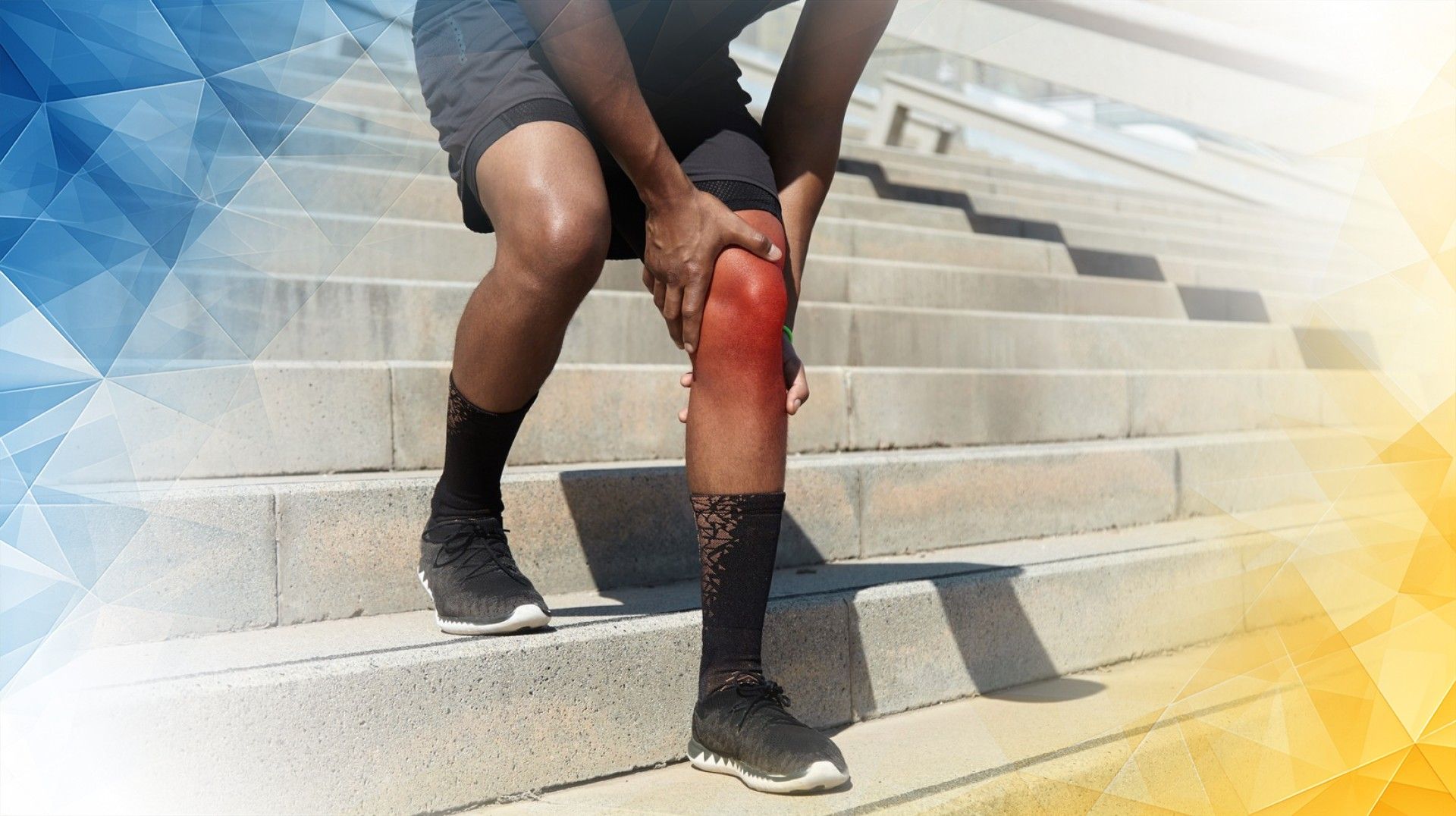



When you think of a concussion, it’s natural to focus on the brain and its immediate, obvious symptoms. But emerging research reveals a surprising connection: concussions can also have lasting effects on the health of your knee cartilage . While this link might seem unexpected, it’s critically important—especially for those recovering from a concussion who may unknowingly put extra strain on their joints. In this article, we’ll explore how a head injury can indirectly impact the knee ’s delicate cartilage by altering muscle control and joint movement . We’ll break down the science behind these effects and share practical rehabilitation strategies to support both brain and joint recovery.
A concussion is a mild traumatic brain injury caused by a blow or jolt to the head. This disruption to the brain’s function can cause symptoms like dizziness, headaches, trouble concentrating, and poor balance—issues that understandably receive the most attention. However, there’s more to the story: changes in how your body moves after a concussion can also affect your joints .
Knee cartilage is a smooth, rubbery tissue that coats the ends of bones within the knee joint, providing cushioning and allowing your knees to move smoothly. When healthy, it helps absorb the shock from walking, running, and jumping. If cartilage is damaged or worn out, pain, stiffness, and even osteoarthritis can develop.
Recent studies suggest that concussions can interfere with the nervous system in a way that disrupts how your muscles and joints work together. These disruptions can increase the physical stress placed on knee cartilage , leaving it more vulnerable to wear and injury. Understanding this connection is key to ensuring joint health is not overlooked during concussion recovery.
After a concussion, the brain may temporarily lose some of its ability to coordinate muscle movements and sense body position—a skill known as proprioception. As a result, muscles may not respond as quickly or accurately, making it harder to keep the knee stable during movement.
For example, someone recovering from a concussion might experience muscle weakness or slower reflexes around the knee, causing the joint to move awkwardly or bear weight unevenly. Research suggests these changes can alter the forces placed on knee cartilage , potentially increasing wear and tear.
Interestingly, recent findings also show that rehabilitation programs for post- concussion symptoms can be effective no matter when treatment begins. According to one study, improvements in muscle control and joint support appeared similar whether patients started physical therapy soon after their concussion or delayed treatment by several weeks (Moser et al., 2021). This is encouraging news for anyone worried about missing the “ideal” therapy window.
When muscles aren’t properly supporting your knee , the cartilage may face more pressure and stress than usual, raising the risk of damage over time. This helps explain why some people only develop joint problems months after a concussion.
Recovering from a concussion isn’t only about giving the brain time to heal —muscles and joints need attention too. Comprehensive rehabilitation programs that blend neurological care with physical therapy can support both aspects of recovery.
These programs typically include exercises to improve balance, build strength, and restore joint awareness. For instance, targeted strength training can recondition muscles around the knee while balance and coordination drills retrain the brain and body to work together. This dual approach can reduce harmful stresses on knee cartilage , promoting healthier movement patterns.
Studies suggest that timely interventions are helpful, but even those who start therapy later can benefit significantly (Moser et al., 2021). The key is ensuring that rehabilitation is tailored to the individual, focusing on both neurological symptoms and joint protection.
Early assessment of knee function following a concussion is crucial. It gives healthcare providers the information needed to personalize rehabilitation plans, reducing the risk of long-term joint issues . Gradually increasing activity levels under professional guidance allows for safe progression without overloading the knees .
The heart of this issue lies in the nervous system’s role in controlling movement. When the brain’s communication with muscles is disrupted after a concussion, everyday activities like walking or climbing stairs can place uneven or excessive forces on knee cartilage .
Over time, this extra stress can wear down the cartilage, leading to chronic joint pain or injury if not addressed. While research in this area is still developing—often limited by small studies and short follow-ups—the evidence so far highlights the importance of a whole-body approach to concussion recovery.
Rather than thinking of a concussion as just a “brain injury,” it makes sense to address the way it can influence the health of joints and muscles, too. This broader view helps ensure more complete recovery and may prevent future injuries down the line.
A concussion can have ripple effects that reach far beyond the brain, affecting the health and stability of the knee joint by altering muscle control and movement patterns. Understanding this connection is vital for thorough, long-term recovery. Clinicians should include joint assessments as part of concussion management, and rehabilitation programs should support both neurological healing and musculoskeletal strength.
As our understanding of this brain–joint connection grows, we hope to refine rehabilitation strategies to better protect both cognitive function and joint integrity. For now, the best approach is a holistic one—caring for the whole body during concussion recovery to restore well-being and reduce the risk of future injury.
Williams, K. L., Zeoli, T., Allen, J. H., Jo, J., Yengo‐Kahn, A. M., Terry, D. P., & Zuckerman, S. L. (2023). Risk of Two Sport-Related Concussions in the Same Year: Is the Second Concussion Worse? Clinical Journal of Sport Medicine, 34(1), 38-43. https://doi.org/10.1097/jsm.0000000000001156
Moser, R. S., Schatz, P., Mayer, B., Friedman, S., Perkins, M., Zebrowski, C., Islam, S., Lemke, H., James, M. T., & Vidal, P. (2021). Does time since injury and duration matter in the benefits of physical therapy treatment for concussion? Journal of Concussion, 5. https://doi.org/10.1177/20597002211020896
Maerlender, A., Lichtenstein, J. D., Parent-Nichols, J., Higgins, K., & Reisher, P. (2019). Concussion competencies: a training model for school-based concussion management. Concussion, 4(1), CNC61. https://doi.org/10.2217/cnc-2018-0008
A concussion can disrupt muscle control and movement patterns, putting uneven stress on knee cartilage. This may lead to increased wear, pain or even osteoarthritis over time. London Cartilage Clinic uses advanced assessment to identify such issues early, protecting your joint health while you recover from brain injury.
Joint assessment is crucial because muscle coordination and stability may be weakened after a concussion, increasing the risk of cartilage damage. At London Cartilage Clinic, Prof Lee’s expert evaluations ensure you receive a personalised rehabilitation plan that strengthens joints and supports long-term musculoskeletal health.
London Cartilage Clinic offers integrated neurological and orthopaedic rehabilitation, blending balance, strength, and proprioceptive training. Led by Prof Lee, whose extensive experience ensures state-of-the-art care, patients benefit from timely, tailored therapies that address both brain and joint recovery for optimal healing and injury prevention.
Yes, evidence shows even patients who start rehabilitation later can achieve excellent results. At London Cartilage Clinic, Prof Lee creates customised programmes regardless of when you begin, focusing on restoring muscle control, joint stability, and preventing long-term knee issues for every individual patient.
Prof Lee brings advanced expertise in cartilage repair and post-concussion rehabilitation, blending innovative therapies for comprehensive recovery. His clinical leadership at London Cartilage Clinic ensures patients receive holistic care, from early assessment to bespoke rehabilitation, maximising both brain and joint health after concussion.
All our treatments are selected to help patients achieve the best possible outcomes and return to the quality of life they deserve. Get in touch if you have any questions.
At London Cartilage Clinic, we are constantly staying up-to-date on the latest treatment options for knee injuries and ongoing knee health issues. As a result, our patients have access to the best equipment, techniques, and expertise in the field, whether it’s for cartilage repair, regeneration, or replacement.
For the best in patient care and cartilage knowledge, contact London Cartilage Clinic today.
At London Cartilage Clinic, our team has spent years gaining an in-depth understanding of human biology and the skills necessary to provide a wide range of cartilage treatments. It’s our mission to administer comprehensive care through innovative solutions targeted at key areas, including cartilage injuries. During an initial consultation, one of our medical professionals will establish which path forward is best for you.
Contact us if you have any questions about the various treatment methods on offer.
Legal & Medical Disclaimer
This article is written by an independent contributor and reflects their own views and experience, not necessarily those of londoncartilage.com. It is provided for general information and education only and does not constitute medical advice, diagnosis, or treatment.
Always seek personalised advice from a qualified healthcare professional before making decisions about your health. londoncartilage.com accepts no responsibility for errors, omissions, third-party content, or any loss, damage, or injury arising from reliance on this material. If you believe this article contains inaccurate or infringing content, please contact us at [email protected].